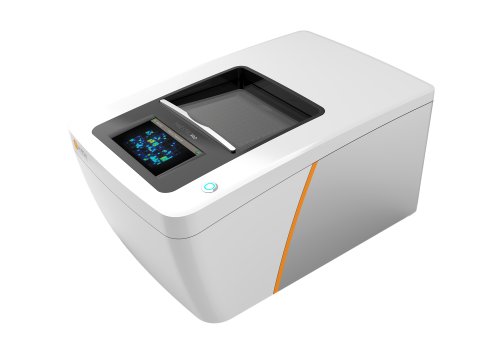Authors: BK Unda, L Chalil, S Yoon, S Kilpatrick, C Irwin, S Xing, N Murtaza, A Cheng, C Brown, A Afonso, E McCready, GM Ronen, J Howe, A Caye-Eude, A Verloes, BW Doble, L Faivre, A Vitobello, SW Scherer, Y Lu, P Penzes, KK Singh
Molecurlar Psychiatry, 06 January 2023
Scientists use Axion’s next-generation MEA platform and other methods to explore the role of OTUD7A in neuronal dysfunction in vitro.
The 15q13.3 microdeletion syndrome is associated with an increased risk for neurodevelopmental and neuropsychiatric conditions including intellectual disability, autism spectrum disorder, epilepsy, and schizophrenia, but scientists do not fully understand the underlying mechanisms if this relationship. In this study, researchers examine the role of the OTUD7A driver gene on developmental defects in neuronal maturation and network activity using a 15q13.3 mouse model and human induced pluripotent stem cell (hiPSC)-derived neurons on Axion’s noninvasive, label-free Maestro Pro multielectrode array (MEA), as well as other methods. Overall, the results suggest “that the regulation of Ankyrin protein homeostasis by OTUD7A is a critical mechanism for neurodevelopment, which is impaired in the 15q13.3 microdeletion” and demonstrate that restoring OTUD7A or Ankyrin-G expression in 15q13.3 microdeletion neurons reversed neuronal deficits—findings that may pave the way to the development of novel therapeutics.


